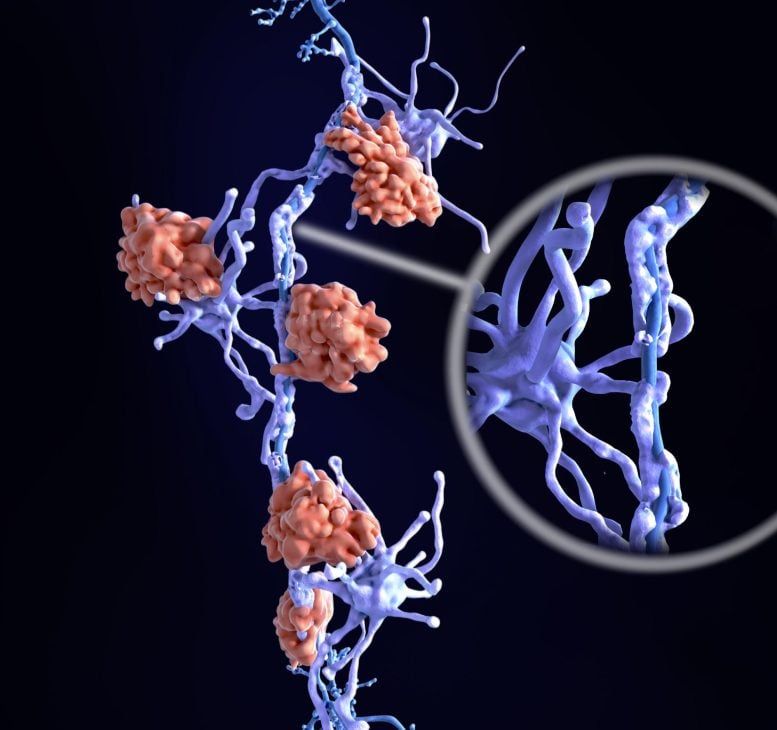
Unlocking the Link Between Diet and Multiple Sclerosis: The Surprising Role of Palm Oil
As the saying goes, “you are what you eat,” and this may be especially true for managing multiple sclerosis (MS)—a progressive autoimmune disease affecting the central nervous system. Recent research has highlighted a surprising dietary factor in the MS puzzle: palm oil.
Multiple sclerosis is a complex and often unpredictable disease, where the immune system mistakenly attacks the protective myelin sheath around nerve fibers. This disruption in communication between the brain and the rest of the body can result in symptoms such as muscle weakness, vision issues, numbness, and cognitive decline. While the exact cause of MS remains unknown, experts have long speculated that diet could influence disease progression.
A groundbreaking study, led by Dr. Patrizia Casaccia, founding director of the Advanced Science Research Center at the Graduate Center of the City University of New York, has uncovered a direct link between diets high in palm oil and accelerated neurodegeneration in MS patients. The study, published in the journal Glia, reveals critical insights into how palm oil impacts MS progression and what dietary changes might help mitigate its effects.
How Palm Oil Affects MS: Understanding the Role of DGK Enzymes
The study reveals that certain enzymes within neurons, called diacylglycerol kinases (DGKs), are central to how palm oil impacts brain health in MS. These enzymes regulate the levels of diacylglycerol, a lipid essential for neuronal communication and signaling.
When the diet includes large amounts of palm oil—a saturated fat commonly found in processed foods—DGK enzymes become overwhelmed, causing an imbalance in diacylglycerol levels. This imbalance triggers a harmful chain reaction, leading to neurodegeneration—a defining feature of MS progression.
“It was a remarkable discovery,” says Dr. Casaccia. “We’ve suspected diet plays a role in MS, but this study provides a clearer understanding of the mechanisms involved. By targeting DGK enzymes, we may be able to develop new treatments that slow disease progression and improve quality of life for people with MS.”
A Potential Solution: DGKi-Rich Foods May Protect Against Neurodegeneration
The study’s findings go beyond identifying palm oil’s effects on MS; they also highlight a potential dietary solution. Researchers found that a naturally occurring compound called diacylglycerol kinase inhibitor (DGKi) can counteract the toxic effects of palm oil on neurons. This compound is found in several fruits and vegetables, including avocados, broccoli, and certain berries.
“We discovered that DGKi helps restore balance in diacylglycerol levels, protecting neurons from the degenerative effects of palm oil,” Dr. Casaccia explains. This insight opens up promising new avenues for MS management, including dietary interventions and potentially even drug therapies targeting DGK enzymes.
For individuals living with MS, incorporating more DGKi-rich foods could help slow disease progression and reduce symptoms. This approach aligns with the growing interest in nutritional interventions for managing chronic conditions.
Implications for MS Treatment: How Dietary Choices Could Impact Brain Health
While the road to new treatments is long, this research represents a significant step forward in understanding MS’s complex relationship with diet and brain function. Dr. Casaccia emphasizes that this interdisciplinary approach—exploring the intersections of nutrition, cell biology, and neuroscience—could transform how we view and treat chronic conditions like MS.
“This study underscores the importance of interdisciplinary research. By examining diet and cell function together, we’re uncovering insights that could ultimately transform MS treatment,” Dr. Casaccia notes.
Takeaway: Supporting Brain Health Through Diet
As more is understood about the connections between diet and neurological health, this study is a reminder of the powerful impact our dietary choices can have. Choosing nutrient-dense foods—especially those rich in DGKi—could be a simple but effective way to support brain health and potentially improve outcomes for those with MS.
So, the next time you reach for a processed snack, consider the potential impact on your neurological health. Load up on those DGKi-rich fruits and vegetables—your brain (and body) may thank you.
Originally published on SciTechDaily.
